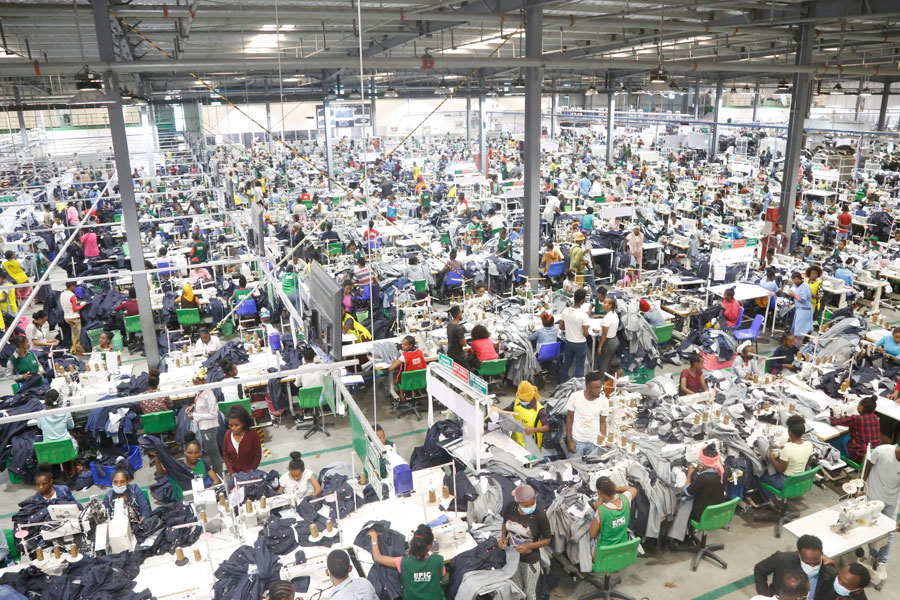
Radar | May 28,2022
Jun 10 , 2023
By Jim O’Neill
Hardly a week goes by without various pioneers in artificial intelligence (AI) issuing dire warnings about the technology they introduced. I got an early glimpse of this emerging pessimistic consensus a couple of months ago when I attended a dinner with some AI experts who suggested that millions of relatively sophisticated, high-paying jobs could be at risk.
I came away asking if this bleak outlook was justified. I have my doubts.
Since the start of my professional life in the 1980s (and, of course, for much longer), technological progress has repeatedly been held up as a significant threat to jobs in critical industries such as automobile manufacturing. Yet until the Brexit debacle, the United Kingdom (UK) produced more vehicles than it did in the supposed heyday of the auto industry, owing to the role of sophisticated new technologies in boosting leading producers’ core businesses.
In the northern English port city of Sunderland, Nissan operates one of the most productive auto plants in the world.
Likewise, despite German autoworkers commanding relatively higher nominal wages, the country’s carmakers have adapted and thrived for decades, competing globally and helping to satisfy a growing global middle class’s demand for high-quality performance vehicles. Yes, German auto companies face their biggest challenge yet with the global transition to electric vehicles and the slowdown in China implies weaker growth in the short term.
But if the past is any guide, the industry could adapt and emerge even stronger in the future.
AI doomsayers also ignore that populations are ageing fast across most of the developed world and many major developing and emerging economies. With the growth of the labour force slowing at a time when people are also living longer, there will be more and more pressure on smaller working-age populations to finance pensions, healthcare, and other (typically) nondiscretionary commitments.
Unless this smaller working population can become more productive, the economy’s growth performance will struggle. Japan and Italy are stand-out examples of this trend from the past few decades, but they are hardly alone. China, South Korea, and most of continental Europe are in the same boat. While immigration offers a partial solution, it is an increasingly charged political issue. Productivity-enhancing AI applications could be precisely what is needed.
Look at what has been happening at the UK’s treasured National Health Service (NHS), which is eating up ever more of the country’s finances. The NHS employs more people than ever, yet it is becoming less and less productive. We in the UK are exposed to endless horror stories about the NHS’s failings and what they mean for citizens seeking care. Having dug into this issue as a member of the Times Health Commission, it is evident that the NHS needs a dramatic uptake of modern technology to help with simple tasks (such as getting one computer system to talk to another) and more complicated ones.
For example, embedding high-speed, AI-augmented diagnostics across the system could help to detect disease risks and provide earlier treatment – preferably through pharmacies or general practitioners. Such interventions would vastly improve both productivity and quality of care.
We already have early but compelling evidence of what AI could do for public health globally. According to a BBC story, a group of scientists in Canada and the United States have used AI to discover a new antibiotic that is proving effective (so far) against Acinetobacter baumannii, one of the known antimicrobial-resistant superbugs on the World Health Organization’s (WTO) watch list.
Having led the UK’s independent Review on AMR from 2014 to 2016, I am highly encouraged by this development. The drug will still have to go through the usual clinical trials, which are lengthy and expensive. But if all goes well, it will be the first time in decades that we have acquired a genuinely effective antibiotic against deadly superbugs. Now imagine what else AI could do just in the realm of medicine – from helping to discover or develop vaccines for hitherto unpreventable diseases to streamlining the clinical-trial process more broadly.
Of course, the AI experts are surely correct that we will need guardrails and high standards of regulation, lest this latest wave of innovation cause social, political, and economic havoc. The current era of round-the-clock social media, clickbait, and fake news has little to recommend, making much of the pessimism understandable. But that is no reason to ignore AI's obvious, massive potential benefits.
PUBLISHED ON
Jun 10,2023 [ VOL
24 , NO
1206]


Radar | May 28,2022

Viewpoints | May 02,2024

Sponsored Contents | Dec 20,2024

Commentaries | Dec 07,2024

Commentaries | Mar 23,2024

Commentaries | Feb 10,2024

Sunday with Eden | Jan 18,2020

My Opinion | May 24,2025

Agenda | Dec 15,2024

My Opinion | Jul 29,2023

My Opinion | 131981 Views | Aug 14,2021

My Opinion | 128369 Views | Aug 21,2021

My Opinion | 126307 Views | Sep 10,2021

My Opinion | 123925 Views | Aug 07,2021

Dec 22 , 2024 . By TIZITA SHEWAFERAW
Charged with transforming colossal state-owned enterprises into modern and competitiv...

Aug 18 , 2024 . By AKSAH ITALO
Although predictable Yonas Zerihun's job in the ride-hailing service is not immune to...

Jul 28 , 2024 . By TIZITA SHEWAFERAW
Unhabitual, perhaps too many, Samuel Gebreyohannes, 38, used to occasionally enjoy a couple of beers at breakfast. However, he recently swit...

Jul 13 , 2024 . By AKSAH ITALO
Investors who rely on tractors, trucks, and field vehicles for commuting, transporting commodities, and f...

Jul 5 , 2025
Six years ago, Ethiopia was the darling of international liberal commentators. A year...

Jun 28 , 2025
Meseret Damtie, the assertive auditor general, has never been shy about naming names...

Jun 21 , 2025
A well-worn adage says, “Budget is not destiny, but it is direction.” Examining t...

Jun 14 , 2025
Yet again, the Horn of Africa is bracing for trouble. A region already frayed by wars...

Jul 6 , 2025 . By BEZAWIT HULUAGER
The federal legislature gave Prime Minister Abiy Ahmed (PhD) what he wanted: a 1.9 tr...

Jul 6 , 2025 . By YITBAREK GETACHEW
In a city rising skyward at breakneck speed, a reckoning has arrived. Authorities in...

Jul 6 , 2025 . By NAHOM AYELE
A landmark directive from the Ministry of Finance signals a paradigm shift in the cou...

Jul 6 , 2025 . By NAHOM AYELE
Awash Bank has announced plans to establish a dedicated investment banking subsidiary...